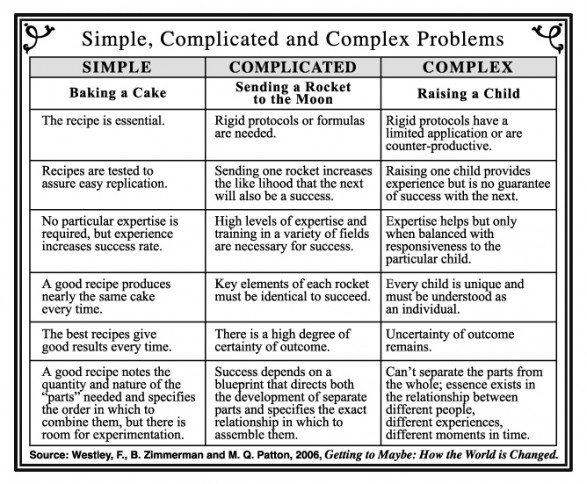 If we can put a person on the moon, why can’t we… feed the world? Put an end to poverty? Or?
If we can put a person on the moon, why can’t we… feed the world? Put an end to poverty? Or?
As this figure shows, these questions exhibit a kind of category error, mistaking complex problems for the merely complicated.
It is redrawn from from the 2007 book Getting to Maybe: How the World is Changed by Frances Westley, Brenda Zimmerman, and Michael Quinn Patton.
They write:
Disasters can occur when complex issues are managed or measured as if they are merely complicated or even simple. For example, our current approaches to dealing with mental illness focus on engineering the correct psycho-pharmaceutical intervention to fix the problem. The fact that many patients are too ill to adhere to their proscribed drug regimens is ignored as it demands of our specialists a level of interaction and adjustment most are not equipped to deliver. A new layer of expertise develops around forcing compliance to the drug regimens rather than crafting regimens and support systems that respond to the needs and circumstances of the patient.
Similarly, we organize our schools to be efficient in supplying education to large numbers and largely unresponsive to the wide range of learning styles and capacities that we know exists. Then we diagnose those who cannot learn efficiently as suffering from learning disorders and attempt to treat them, not the system.
Both of these are examples of addressing apparently intractable problems, crying out for social innovation, with methods, tools, approaches and mindsets that are appropriate for complicated situations. And while at times such an approach can give us a measure of false security, inevitably it gets us into trouble.
Image design: Rocketeye

